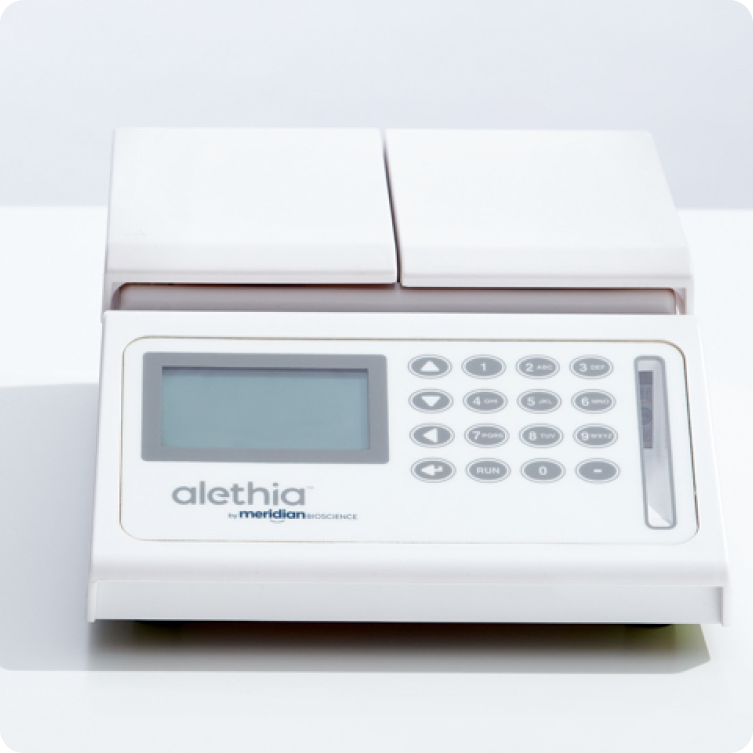Congenital CMV Testing
Prevent the Preventable. Manage the Manageable.
1 out 3 pregnant women who become infected with CMV will pass the virus to their unborn child. 1 in 200 babies are born with congenital CMV each year, and 1 in 5 will have health complications.1
1 out 3 pregnant women who become infected with CMV will pass the virus to their unborn child. 1 in 200 babies are born with congenital CMV each year, and 1 in 5 will have health complications.1
Congenital Cytomegalovirus (cCMV)
Congenital Cytomegalovirus is the most common virus passed from mothers to babies during pregnancy. It can cause developmental disabilities such as hearing and vision loss, cerebral palsy, mental disability, and, in rare cases, death.
CMV is the #1 cause of non-genetic deafness in children.2
90% of congenital CMV positive babies are born asymptomatic, yet 10-15% will go on to develop hearing loss.2
CMV is the most common congenital infection and yet, the majority of women have never heard of it.3
Molecular testing solutions for congenital CMV
The First FDA Cleared Molecular Test for cCMV in Saliva That Provides Results in Less Than 1 Hour
Alethia CMV provides fast, actionable results before the baby goes home. Accurate results are obtained in less than 1 hour by using an easy to collect, non-invasive saliva sample.Learn More About Congenital CMV Infection
CMV is one of the world’s most prevalent viral infections, often presenting with mild symptoms that can be managed. If left untreated, a CMV infection can lead to serious health issues such as hearing loss, vision impairment, and even developmental disabilities.
Congenital Cytomegalovirus: A Silent Risk to Newborns
Shannon A Ross MD, MSPH
Pediatric Infectious Diseases
The University of Alabama at Birmingham
Education Resources About CMV testing
As dedicated partners in enhancing patient care, we take pride in our diverse diagnostic portfolio and go further by offering educational content and tools, leveraging our expertise to boost testing utilization and support our partners comprehensively.
Learn More About Congenital Cytomegalovirus (cCMV)
Congenital CMV testing involves screening newborns for Cytomegalovirus (CMV) shortly after birth to detect infections that occurred during pregnancy. This testing is critical for early intervention and management of potential health issues.4
A comprehensive CMV diagnostic solution includes a variety of tests such as CMV PCR Test, CMV DNA Testing, and CMV Serology Test to detect the presence of the virus or antibodies produced in response, providing a complete assessment of the infection status.4
Congenital CMV screening is essential as it can help prevent long-term health effects such as hearing loss or developmental delays by facilitating early detection and treatment of CMV infections.4
The primary methods for CMV detection in newborns include CMV PCR Test and CMV DNA Testing, which are highly sensitive techniques for identifying the virus in body fluids like urine or saliva.4
CMV DNA Testing detects the genetic material of the virus, confirming active infection, while CMV Antibody Testing looks for antibodies (such as CMV IgM and CMV IgG), which can indicate an immune response to the virus but may not distinguish between maternal antibodies and those produced by the newborn.4
The CMV PCR Test plays a critical role in diagnosing congenital CMV by detecting CMV DNA in samples from newborns, offering a rapid and accurate diagnosis essential for early therapeutic interventions.4
References:
- https://www.cdc.gov/cytomegalovirus/about/
- https://www.nationalcmv.org/
- Doutre, S.M. et al., (2016) Losing Ground: Awareness of congenital CMV in the United States. Journal of Early Hearing Detection and Intervention, 1(2), 39-48
- https://www.cdc.gov/cytomegalovirus/congenital-infection/index.html




